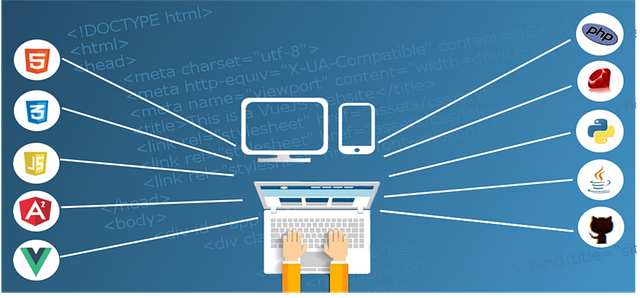What exactly are CRM tools? Why should businesses care about them? Are they really as transformative as some industry experts claim they are? These questions and more are increasingly appearing in the minds of business leaders as they seek to unlock the full potential of their organizations in the digital age. Customer Relationship Management (CRM) tools are a potent lever in this quest, heralding a new phase of connected, personalized, and responsive business operations.
Despite the array of benefits ascribed to CRM tools, there still exists a persistent problem of under-utilization and misunderstanding of these systems in many organizations. According to a 2020 Forrester Research report, close to 47% of CRM implementations fail due to poor user adoption. Salesforce, a leading CRM provider, also acknowledges this issue, citing lack of strategy and clear goals. Given these realities, it’s evident that there’s an urgent need for businesses to understand how CRMs can be effectively implemented to truly contribute to organizational success.
In this article, you will learn about the core functionalities of CRM tools and the strategic benefits they can bring to your business. You will discover how these powerful solutions can revolutionize customer engagement, enhance sales effectiveness, and deliver actionable insights for decision-making. Furthermore, the article will delve into the common pitfalls businesses face when implementing CRM tools, and propose tactics to avoid them.
At its heart, this piece aims to dispel some of the myths surrounding CRM tools and provide practical guidance that will enable businesses to fully leverage this technology. The journey will traverse through a multitude of case studies, expert opinions and research findings, culminating in a comprehensive guide for businesses looking to unlock the power of CRM tools.

Understanding the Definitions of CRM Tools
CRM tools, or Customer Relationship Management tools, refer to software programs that help businesses manage and analyze their relationships with customers. It’s like a vast database meticulously tracking every interaction, detail, and communication with customers and potential customers.
They are designed to collate information across multiple channels and points of contact between the customer and the company, such as the company’s website, emails, social media, and more.
CRM tools also provide detailed analytics to help businesses understand their customers better, enhance engagement, reduce churn, and improve customer service.
They are typically used in sales, marketing, and customer service departments to streamline processes, learn about customers, and ultimately grow the business.
Unlocking Business Success: The Power of CRM Tools
Decoding CRM: The Underpinning of Business Success
Business enterprise applications
Microsoft 365 Apps for Enterprise
Enterprise Business apps generator
CRM tools, otherwise known as Customer Relationship Management software, are pivotal elements in advancing businesses in today’s digitally-driven market landscape. These sophisticated tools are designed to manage, analyse, and improve business relationships and customer interactions effectively. They are an all-inclusive entity that caters to every vital touchpoint in a customer’s journey. From cultivating leads, managing customers, tailoring marketing strategies, streamlining workflows to tracking sales and forecasting future trends, the multifaceted functionality of CRM tools contributes significantly to business success.
Their advantages are manifold, of which a few are enhancing customer satisfaction, boosting sales, escalating profit margins, and encouraging customer loyalty. With a CRM tool in place, companies can engage with customers in a more personalized way, addressing their needs and preferences astutely. In addition, CRM tools help businesses consolidate a plethora of customer data spread across multiple channels into a single unified platform, paving the way for data-driven decision-making and insightful business strategies.
The Indispensable Role of CRM Tools in Business Excellence
There’s a myriad of ways how CRM tools catapult businesses into new heights of success. Firstly, by automating routine tasks and streamlining multiple processes, CRM tools enhance productivity and operational efficiency, thus leaving more room for the workforce to focus on core competitive tasks.
Secondly, CRM tools increase sales efficiency by offering insights into customer behavior and purchasing patterns. Hence, sales teams can prioritize leads that are likely to convert and tailor their sales and marketing strategies to resonate well with potential customers.
- CRM tools are robust platforms that blend sales, customer service, and marketing efforts to create a cohesive customer management process, improving overall performance and customer loyalty.
- They enable businesses to identify potential issues and address customer pain points promptly, leading to an improved customer experience and increased customer retention.
- With an ability to gather detailed customer data, CRM tools foster personalized interactions, helping companies stand out amidst stiff market competition.
- Most importantly, CRM tools provide a holistic view of a business’s performance, allowing leaders to make informed business decisions and strategic adjustments as needed.
CRM tools, with their adaptable and scalable nature, serve as a potent instrument in achieving business success. As businesses grow, CRM tools can be adapted and expanded to accommodate increasing customer databases, complex operations, and more departments. Transforming the way businesses interact with their customers, CRM tools have indeed become an integral part for businesses to unlock their full potential and achieve unparallel business success.
Redefining Customer Engagement: The Revolution of CRM Tools
Rethinking Customer Engagement
Is it really possible to reimage customer engagement in this day and age? Absolutely. In an increasingly digital world, the customer experience is paramount to maintaining strong customer relationships and driving revenue. The digital transformation has redefined the meaning of customer engagement and CRM tools, or ‘Customer Relationship Management’ tools, play a pivotal role within this reimagination. CRM tools are software that allow businesses to manage all their relationships and interactions with their customers and leads in one place. These tools, providing a comprehensive, holistic view of each customer, enable businesses to analyze, foresee and respond to their needs, preferences, and behavior more effectively. In essence, CRM tools empower businesses to deliver a personalized, seamless customer experience across all touchpoints, fostering customer loyalty and driving profitability.
Unearthing the Challenges
The core challenge that businesses face today is the inability to understand and cater to the diverse needs of their customers, resulting in poor customer experiences and, consequently, loss of business opportunities. Lack of personalization, inconsistencies in interactions across various channels, and inefficiency in tracking and managing leads and customer data can be highly detrimental to businesses. CRM tools, although vital, can also be overwhelming for businesses in terms of choosing the right one, implementing it correctly, and ensuring its optimum usage. The trickiest part is achieving synchronization between various departments and ensuring that the CRM tool is user-friendly and provides value to all internal stakeholders.
Steering Towards Best Practices
Despite the challenges, the ongoing CRM revolution has seen several success stories that are worth taking notes from. Salesforce, one of the world’s leading CRM tools, was a game-changer for Spotify. By integrating Salesforce with its existing systems, Spotify achieved greater customer visibility, streamlining its customer service efforts and improving user satisfaction overall. Similarly, Zoho CRM helped Riverbed Technology streamline its global sales and marketing efforts. It enabled them to merge their customer databases into a single unified system, thus providing a 360-degree view of each customer and helping them deliver a more personalized and targeted communication strategy. Lastly, MailChimp, a highly sought-after CRM tool used by smaller businesses, helped TOMS Shoes increase their email marketing success rate by tracking clicks and opens, and subsequently tailoring their marketing strategies on hard data. As these examples demonstrate, businesses, irrespective of their size, can harness the power of CRM tools to redefine their customer engagement and stay ahead of the competition.
Reexamining Profit Margin Growth: The Impact of CRM Tools
The Genesis of CRM Tools
Have you ever wondered how the quantum leap in technology has reinvented the relationship between businesses and their customers? The key lies in Customer Relationship Management (CRM) tools. CRM tools are software systems designed to streamline a company’s interactions and business relationships with customers and potential clients. They deliver profound functionality with the capacity to manage every aspect of business-customer relationship: starting from tracking sales, leads, market trends to providing customer service, and managing marketing efforts. Essentially, a successful implementation of CRM initiatives can translate directly into a boosted profit margin growth for business entities. The versatility of CRM lies in its ability to gather affluent customer data, analyze these swathes of information, and then utilize it to create more engaging, personalized experiences for customers.
The Conundrum at Hand
However, despite the promising benefits, the adoption of CRM tools is often marred by considerable challenges. One critical issue is the underutilization or improper usage of CRM which has led many businesses into dire straits instead of increased profits. Employees might feel deterred by the learning curve, thus limiting their usage to basic data entry without leveraging the analytics and customer insights that CRM tools provide. Not to be underrated, the problems are often rooted deeper in the lack of alignment of CRM tools with the overall business strategy, leading to a void between entity and customer interaction. Furthermore, there is a propensity of businesses accumulating an excess of customer data without a coherent plan of how to analyze and use it. This overload of unprocessed, unanalyzed data can act as an unseen foe, deluding clear decision-making and paradoxically, millstone businesses further from the goal of profit margin growth.
Globetrotting CRM Best Practices
Nonetheless, many successful companies serve as stellar instances of CRM best practices. Amazon, for example, has been making the most out of the CRM tool for personalized e-mail marketing, where the email content is directed based on a customer’s past behaviors, preferences, and purchases. This engagement strategy has translated into fostered customer loyalty and an upswing in customer retention rates. Salesforce, the leading CRM platform, exhibits success in the way they use their own tool to keep track of customer feedback, which has been invaluable to their development and innovation strategies. Furthermore, Apple Inc.’s CRM focuses on improved customer service and support, serving as the cornerstone of their high customer satisfaction rates. They leverage CRM data to provide personalized service, foster customer relationships, inevitably contributing to their staggering profit margins. These companies demonstrate the potential impact of considerate, strategic CRM usage on increasing profitability, proving intrinsic to any business seeking sustainable growth in a hyper-competitive market landscape.
Conclusion
Isn’t it amazing how CRM tools provide a one-stop solution for managing all your customer interactions? These ingenious systems not only streamline communication channels but also enhance business relationships and help retain clients. Essentially, CRM software is an ideal solution for businesses keen on increasing profitability and sustaining growth.
As you continue navigating this vast world of digital transformation, we highly recommend that you keep this blog as one of your preferred resources for enlightening insights on CRM tools. We aspire to offer you limitless value and industry-based knowledge drawn from our years of information technology experience. Undeniably, the CRM landscape is continually advancing, which implies that there is always something new to learn. We’re here to ensure you navigate proficiently, understanding every new development, and utilizing them to gain a competitive advantage. Bear in mind; your success is our success!
We are excited about our upcoming posts, which are loaded with essential tips and effective strategies to help enhance your CRM systems. However, you’ll have to be a bit patient until our next release. It indeed gets better every time as we dig deeper into the topic and unearth the golden nugget insights. Stick with us, as we’re far from done on this interesting journey of CRM tools.
F.A.Q.
1. What are CRM Tools?
CRM tools are software programs designed to automate and manage communications with a company’s clients effectively. They are utilized to streamline sales, marketing, and customer service processes, increasing efficiency and productivity.
2. What functionalities do CRM tools typically include?
Typically, CRM tools include functionalities such as contact management, sales management, task automation, and reporting. Additionally, many CRM tools also offer features for email marketing, social media integration, and customer support.
3. How can CRM tools benefit a business?
CRM tools help businesses track and manage customer information and interactions effectively. Additionally, they allow businesses to automate tasks, improve customer relationships, and make data-driven decisions to increase sales and revenue.
4. Can small businesses benefit from CRM tools?
Yes, small businesses can greatly benefit from CRM tools. They can help in managing client data, tracking customer interactions, and automating routine tasks, which can lead to higher productivity and improved customer satisfaction.
5. Are all CRM tools same or do they differ?
No, not all CRM tools are the same. They vary in terms of functionality, complexity, cost, user-friendliness, and more. Businesses should select a CRM tool based on their specific needs and goals.



